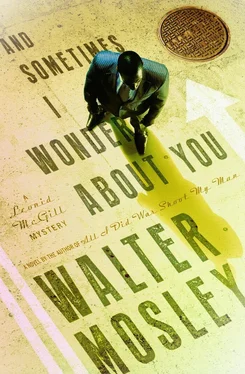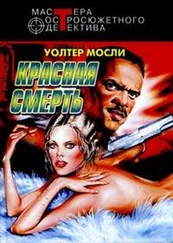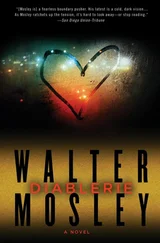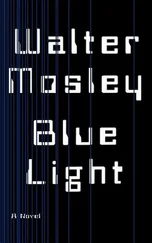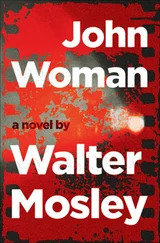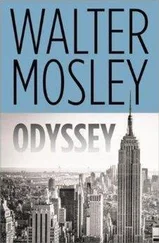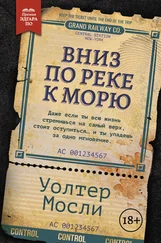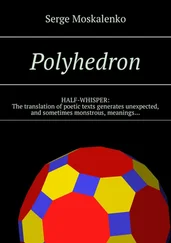“We have to go out and do what needs doing,” I told her.
She smiled and said, “You’ll know I believe you if I’m still here when you get back.”
Twill and I walked to Cambridge. It was little more than a mile.
“She somethin’ else, Pop,” he said as we were crossing the footbridge that led over to Harvard Square. “I mean that’s a woman you could write about in the history books.”
“You know what we’re doing here, right?” I said, avoiding his invitation to the truth.
“Sure do. If what your girl Celia says is right it should be a breeze.”
Melbourne Westmount Ericson was waiting for us near the entrance of the Enclave building. He’d come alone, as I’d asked him to, wearing khaki cargo pants and a pink short-sleeve Polo pullover shirt.
We shook hands and I introduced him to my son.
“You look like a good personal assistant,” Melbourne said to Twill.
“That’s the job.”
“Did you call them?” I asked the billionaire.
“Said that I was considering an endowment,” he said. “After reading about them online I might really do it. It’s really a very interesting enterprise. Combining historical and literary provenance with the weight of ownership, there could be all kinds of interesting study. But there’s one thing.”
“And what thing is that?”
“I’m uncomfortable stealing from these people.”
I might have hated my father. I might have come to the realization that ants and termites were more socialist than Lenin or Marx could ever be when I hadn’t yet reached the age of twenty. But no matter how I feel about blood and philosophy — when I hear a truly wealthy man tell me that he’s uncomfortable with theft I have the desire to wring his neck.
Suppressing my natural response, I said, “Only the book was bequeathed to this institution, and that was a mistake, it doesn’t even show up on the list of gifts. The papers inside are of a personal nature. Imagine if those pictures of Marella got into the hands of some newspaper in DC or New York. Wouldn’t you want me to retrieve them by any means necessary?”
“It’s that bad?” he asked.
“Worse by a factor of forty-nine.”
“Let’s get going,” he said to my son.
I sat down at a bus stop across the street, unsure of what to do with my strangling hands.
Maybe the rage I felt had some kind of outward expression, making me look like a threat while sitting on a wooden bench on an autumn day.
“Excuse me, sir,” a voice said six or seven minutes after I sat.
I looked up and saw a young white cop. He had a pale complexion and a partner that looked nothing like him and yet also would have claimed to be a white man. Something about the disjuncture of their appearance and supposed race reminded me of the rich man who claimed to disdain theft.
“Yes, Officer?”
“What are you doing?”
“Sitting.”
“There’s only one bus that stops here and it just went by,” the second cop said.
“I said I was sitting, not waiting for the bus.”
“This is a bus stop,” the second cop said.
“Is there some kind of law in Massachusetts saying that a tired man can’t sit down at a bus stop without taking a ride?”
“Stand up, sir,” the second policeman ordered.
If I wanted to stay on the case I should have popped up like a tulip in the spring. But there was too much weighing on me: Marella and her man, Jones and those kids, Hiram Stent and his inability to make the right decision.
I looked up at a tree in front of the Enclave across the street. There was a red bird of some kind flitting around the branches, enjoying the experience of dexterity and flight, singing his heart out. For a moment, maybe two, I forgot those cops existed.
Then I felt the hand under my right arm. He, the first cop, tried to lift me. I tensed my muscles and his fingers were trapped. He must have looked frightened because his partner pulled out his gun and said, “Down on your knees!”
I might have died then and there. And those policemen were in as much danger as they feared — maybe more.
But I lowered to my knees while putting unclenched hands in plain sight. That didn’t assure my survival but it was the best choice I had.
Sometimes you might forget who you are and where, but that’s okay because there’s always somebody around that’s happy to remind you.
The policemen actually arrested me; took me to the station, snapped me face-forward and profile, took fingerprints, then interrogated me about various crimes that had happened with a black face maybe somewhere involved.
The whole show didn’t take long. When it was done they allowed me a phone call.
“Mr. McGill?” she said.
“Hey, Z. You back from the motherland?”
“Are you in Boston?”
“Cambridge jail.”
Sitting on a cot in a cell built for one, behind slatted iron bars, I felt unusually calm. I was the honey badger and Marella was the honey; Ericson, Jones, and Dame Gray were the common death threats along the way. And there I was, in the Cambridge jail, imprisoned for nothing I’d done wrong.
It could have been worse and there was still a chance that it might get that way.
These thoughts occurred to me in snatches because I was counting breaths and breathing ever so lightly.
At some point later a man in a black uniform came to pull me out of my meditation cell. He told me that I was being released.
“On bail?” I asked.
“No,” the barrel-shaped pink-skinned man said. “Just released.”
He led me to a room much like the one I’d been questioned in, but instead of inquisitors Melbourne Westmount Ericson and Twill were waiting for me. Along with them was a short chocolate-colored man in a ridiculous powder-blue suit that fit him like a medium glove on an extra-large hand.
“Harlan Sackman,” the new man said, holding out a hand. He had barely an inch on me.
I suppose he had a strong grip.
“I’ll be representing Mr. Ericson while he’s in Mass.,” the lawyer said. “The police have come to understand that their men were overzealous.”
“Overzealous? They arrested me for sitting on a street corner bench.”
“Actually,” Sackman said, “they arrested you for refusing a direct order.”
Sackman rankled me. I didn’t like his clothes or his profession, but what bothered me most was that he endorsed the behavior of the police. I never liked it when a person so identified with their oppressor that they forgave them.
“Come on, Pops,” Twill said, seeing my reaction. “Mr. Ericson and me did what you wanted.”
“Everything?” I asked my son while still staring at the powder-blue suit.
“Oh yeah.”
There was a stretch limo waiting outside the stationhouse. The four of us climbed inside and I gave the driver the name of our hotel.
We didn’t speak on the short ride.
When we got there I separated from the herd and asked the front desk if they had managed to get us the conference room. They had.
That’s when I got nervous.
There were all kinds of things that could have gone wrong. Maybe Ericson really wanted revenge and had his driver call ahead to whatever assassins he might have employed. Maybe Marella had run off as she’d said she might.
“To the room?” Twill asked me.
Ericson and the apologist Sackman were standing ten feet off discussing something.
“You got it?” I asked Twill.
“Of course.”
“Let me see.”
From inside his jacket he pulled out a packet of folded paper, about seven or eight sheets deep. I took the trove from him and pocketed it.
“Any trouble?”
“No,” Twill replied. “No airport machine, no body search. You were right when you said they’d never do a security scan on their own kind. When him and the head man sat down I asked if I could walk around the rooms. I went right to the shelf that Celia told us about. The history book was in the Swedish Bible. The letter was in a hole dug out in between the pages.”
Читать дальше
